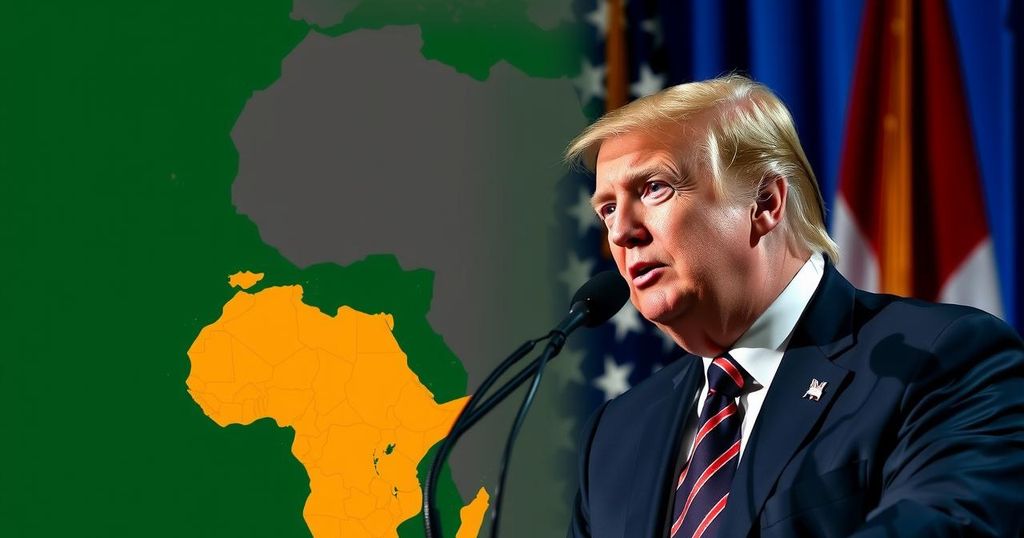Donald Trump’s presidency presents a dual-edged sword for Africa, offering potential openings while posing risks due to his transactional politics. The departure from traditional diplomacy witnessed during his first term may continue, impacting peace efforts across the continent. African leaders must navigate these complexities as they adapt to a shifting U.S. foreign policy that prioritizes short-term outcomes over established democratic norms.
As President-elect, Donald Trump poses both opportunities and risks for Africa. His penchant for transactional politics over traditional diplomacy presents a shift from the previous administration’s focus on multilateral engagement and liberal peace strategies. The Obama administration’s collaborative efforts with the African Union to strengthen peacekeeping initiatives appeared to stall under Trump’s first term, and the Biden administration maintained this trajectory. Trump’s direct approach, favoring bilateral deals with nations like Egypt, Saudi Arabia, and Israel, often neglected broader African interests and human rights considerations. This inclination towards autocratic leaders and disregard for established diplomatic norms may exacerbate instability in conflict-ridden regions like Sudan and Ethiopia. Furthermore, the anticipated second term may continue to prioritize short-term, results-driven outcomes over comprehensive peace-building strategies while leaving Africa’s complex geopolitical challenges unaddressed. The transitioning administration will likely influence Africa’s political landscape as leaders navigate their relationships with Washington amidst shifting global dynamics. Trump’s policies have the potential to either incite conflict or create openings for new negotiations, depending on how African leaders adapt to his transactional model. Ultimately, the future of peace in Africa during Trump’s potential second administration may hinge on the extent to which regional leaders collaborate with emerging power brokers and align their strategies with shifting American foreign policy priorities.
The article highlights the foreign policy implications of Donald Trump’s election for African nations, examining how his approach contrasts sharply with previous administrations. Initially, the Obama administration sought to empower the African Union and support a framework for sustainable peacekeeping. In contrast, Trump’s transactional approach undermined these efforts, focusing instead on direct negotiations with autocratic leaders and sidelining multilateral efforts often associated with democratic ideals. As he potentially returns to the presidency, the consequences of his policy decisions may resonate deeply within the continent, influencing ongoing conflicts and geopolitical strategies in the region.
In summary, Donald Trump’s potential return to the presidency carries significant implications for Africa, marked by a departure from traditional diplomatic practices towards a transactional approach. This shift poses both risks and opportunities for African leaders as they navigate complex geopolitical challenges. The effectiveness of Trump’s policy directions remains uncertain, especially regarding their ability to foster sustainable peace and cooperation in conflict-ridden areas. As Africa’s leaders prepare for upcoming engagements, strategic alignments with U.S. foreign policy will likely shape the continent’s future trajectory in the global arena.
Original Source: www.bbc.com






